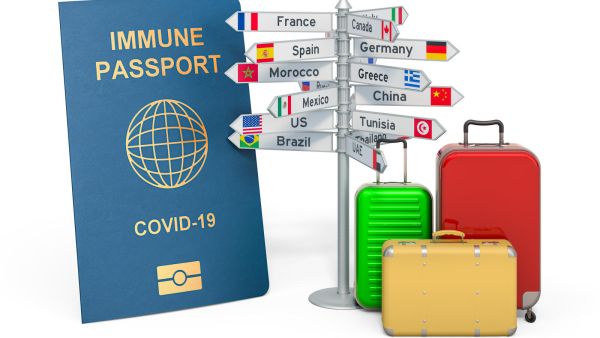Racing to design the most innovative and modern solutions to help the global economy recover despite the increasing danger of COVID-19 pandemic, we may have to look at a not-so-new solution, one that has been quite controversial.
I don't fly if they hamper our rights further https://t.co/xOGvpBWbjJ
— Miatyank (@szepnap) June 14, 2020
In efforts to restore some sense of normality to today's deeply troubled economy, whether in terms of workers performing their jobs on a full-time basis or in terms of travel plans, that once continued will revive tourism in many countries and communities, the world is now investigating the Immunity Passport option.
Similar to vaccine certificates that have for long been required by some countries to issue travel visas, immunity passports are certificates issued once health tests prove that a certain person has recovered from the disease, based on anti-bodies found in their blood.
Over the last few months, several countries have started looking into options that will help identify individuals who have contracted COVID-19, so they can be exempted from all kinds of movement restrictions, especially after a minimum of 60% herd immunity policies needed to reopen countries safely failed to achieve more than 20% rate; even after three months of the outbreak and millions of cases traced worldwide.
Starting from Chile, China, Germany, and Finland, to the UK and the US that are still considering this option, immunity documents, also known as passports, are still facing a lot of question marks.
Chile’s "immunity passport" will allow recovered coronavirus patients to break free from lockdown, get back to work https://t.co/knUNIC4Khm
— The Washington Post (@washingtonpost) April 20, 2020
Theoretically, a positive anti-bodies blood test can help set millions of people free, whether they were symptomatic patients or not. As of today, about 5 million people have been declared recovered around the world. However, scientists are still stressing their careful approach with the novel virus they don't have a full understanding of yet.
Members of the medical community have cast doubt that the immunity achieved by recovering from the Coronavirus can be long-lasting, especially after some Chinese studies reported "quickly fading anti-bodies."
Besides ethical concerns over the possibility of people deliberately trying to get infected so they can be "freed" for travel or work after recovering and receiving the certificate, scientists and doctors have been warning that even if we could prove that individuals, who have recovered from the Coronavirus will never suffer its symptoms again, they can still transmit it to other non-immune individuals in countries or cities they visit.
Being a new and unpredictable virus, one that's still understudies, decisions taken regarding the Coronavirus are among the hardest and most dangerous ones anyone can take.







